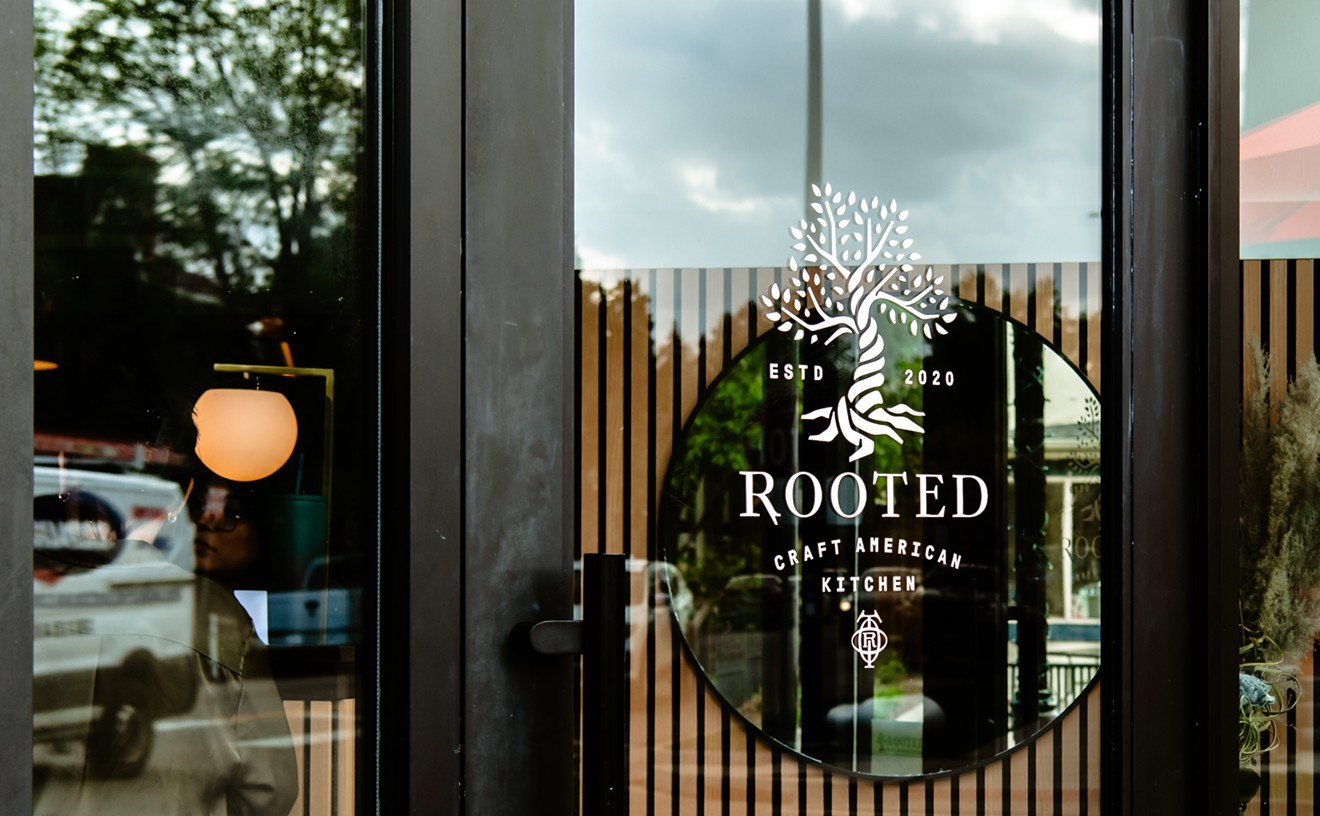In 1999, Morrison and then-partner Tony Walker opened the original Spicy Pickle at 988 Lincoln Street. Marc Geman joined the growing business in 2001, and the Spicy Pickle expanded through company-owned locations and franchisees, eventually infiltrating nine states and going public in 2007. But problems arose with the board. "Their vision and my vision were so apart, it wasn't even close," Morrison says. He left the company in 2009.
By early 2010, he'd launched Pinche Tacos, a food-truck concept that's since spawned a street cart and a taqueria. And he plans to extend that brand, albeit in a very different manner than the Spicy Pickle grew. "I want to grow it on a very small scale," he explains. "I want the locations to be in neighborhoods, and I'm taking a very mom-and-poppish approach."
After Morrison left the Spicy Pickle, that business went on a steady decline. Last week, it closed six of seven company-owned locations, leaving just one -- in Lone Tree -- standing. And tomorrow, the Spicy Pickle will auction off assets from those defunct restaurants, attempting to recover losses for lenders, who are owed more than $4 million. The fate of the franchises is also unclear, since those restaurants -- six in Colorado, including the original at 988 Lincoln -- continue to operate under the agreements they've already signed.
If nothing else, the saga of the Spicy Pickle provides a good study for any restaurateur looking to branch out into multiple units, whether in Colorado or beyond. "I loved my time there," Morrison says. "It was a great education for me; I learned a lot about branding and marketing and about how to do things the smart way and the not-smart way. I don't regret it at all. You live and learn and move on and don't make the same mistakes twice."
Here are some of the Colorado-grown chains that have done things the smart way in their expansions beyond state borders -- and a few that have done things the not-smart way, too. The smart way
Chipotle Founded by Steve Ells with a single store on East Evans in 1993, this mega burrito chain now has more than 1,000 company-owned locations across North America. A couple of years ago, the company stepped into Europe, too, via London. Ells has been called the Steve Jobs of the restaurant industry and "the most innovative man in the world of food" by Pulitzer Prize-winning LA Weekly critic Jonathan Gold.
Qdoba Launched in 1995, Qdoba -- then called Zuma and later named Z-TECA before settling on the current name -- was part of a proliferation of burrito restaurants in Denver in the 1990s. After a private-equity shop briefly owned the chain, the company was acquired by Jack in the Box in 2003 and has since expanded to 700 outlets nationwide.
Smashburger The first Smashburger opened its doors in 2007 under Tom Ryan, who'd cut his teeth at chains like McDonald's, Pizza Hut and Quiznos before striking out on his own. In 2009, Consumer Capital Partners jumped aboard with the cash to facilitate a coast-to-coast expansion, and today there are more than 100 Smashburger locations throughout the country. Late last year, it was ranked number one on Forbes's list of rising-star companies. Noodles & Company This fast-casual pasta spot opened its first restaurant in Cherry Creek in the mid-1990s, offering noodle bowls that ranged from mac and cheese to spaghetti to pad Thai. The company is still privately held and has expanded into more than 250 locations nationwide, nabbing numerous restaurant-chain awards along the way. The not-smart way
Quiznos The toasted-sub empire got its start in Colorado thirty years ago; by 2008, Quiznos had nearly 5,000 stores -- but then quickly started declining, with the shuttering of 1,500 of those addresses. Bankruptcy seemed certain late last year, when the company was attempting to restructure nearly $900 million in debt, but a New York private-equity firm, Avenue Capital Group, picked up nearly 70 percent of the business in January. It plans to inject $150 million in capital into the chain to get it back on its feet.
Village Inn The first Village Inn location opened in Denver in 1958, and the company began a growth spurt that lasted nearly fifty years, as its parent company, VICORP, added more restaurant chains to its portfolio of brands. But that evolution hit a wall in 2008, when VICORP filed for bankruptcy, only to be acquired by American Blue Ribbon Holdings, another Colorado-based company. Dozens of Village Inns closed in the transfer.










